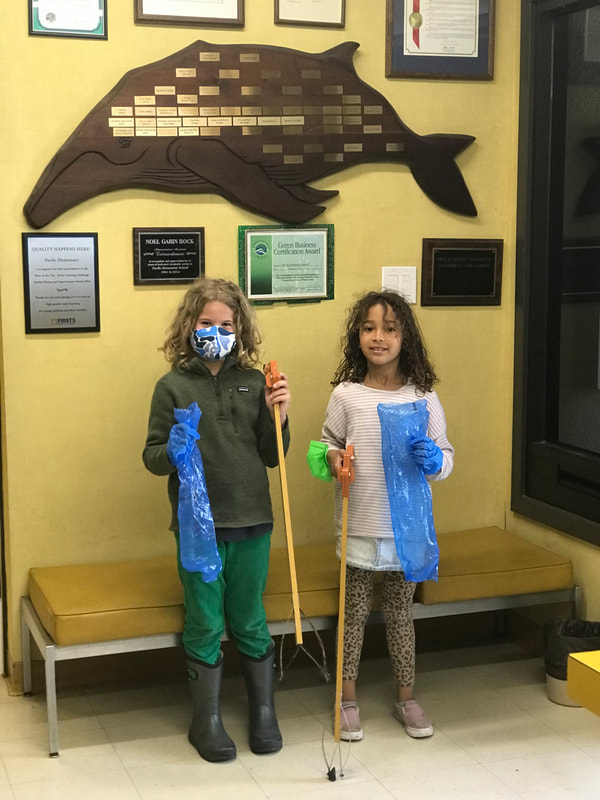Pacific Elementary is a Certified Green School
Overview
Pacific School has been a leader in environmental education for decades through our Life Lab (school garden) and FoodLab (school cafeteria/meals) programs, among many other initiatives. In recent years, our activities in this area have expanded considerably. We are a certified green school through the California Green Business Network. Below is an overview of our current and recent green initiatives.
Pacific School has been a leader in environmental education for decades through our Life Lab (school garden) and FoodLab (school cafeteria/meals) programs, among many other initiatives. In recent years, our activities in this area have expanded considerably. We are a certified green school through the California Green Business Network. Below is an overview of our current and recent green initiatives.
Water
- Faucets and fixtures have been upgraded to low-flow. Additional upgrades will be made during the summer of 2024.
- The lawn and garden sprinkler systems are turned off in the winter and adjusted to minimize water use and evaporative loss in the summer.
- Fruit trees on campus are watered using efficient drip lines.
- In 2023, in collaboration with a class at UCSC, we completed a water audit of the Life Lab garden and discovered a previously unknown leak, which has since been addressed.
- Planter beds around the school require little or no water.
Energy
- Skylights in main rooms reduce the need for electric lighting.
- LED lighting is in use throughout the school, with motion-detecting and automatic-off features in appropriate locations.
- Solar panels have been installed which offset much of the school's electricity use.
- Computers and other appliances have been set to conserve energy when not in use.
- Computer charging carts are designed to conserve energy and charge only those computers that need it.
Solid Waste
- All classrooms and office areas have and use recycling bins. Cardboard is flattened and recycled regularly. Teachers specifically train and encourage students in recycling.
- We encourage reuse of single side copied scratch paper.
- Garden waste is composted on site through compost piles and worm bins, or through the county's composting program.
- Food scraps are collected and donated to a local farm to be used for chicken or hog feed.
- The FoodLab program uses and washes dishes, not disposable food containers.
- Office paper, paper towels, bathroom tissue, and napkins have high recycled paper contents. The kitchen uses reusable rags and aprons.
- "New" furniture is usually purchased or donated used.
- We donate, rather than throw away, unwanted items whenever possible.
Transportation
- We encourage use of the Santa Cruz Metro bus service for transportation to and from school. In 2024, the Metro expanded their route offerings to make transportation available for students from Davenport back to Santa Cruz in the afternoons. They were able to add this new route partly because of the high use of the morning route by Pacific School students.
- Carpooling is encouraged and both staff and families carpool.
- FoodLab uses locally sourced ingredients as much as possible, including a large proportion of hyper-local (within 15 miles) produce and meat.
- Office and art supplies are purchased from a local company whenever possible.
Pollutants
- We do not use herbicides or pesticides in our Life Lab garden or on our school grounds.
- The custodial and other staff use green cleaning products.
- FoodLab uses a very high percentage of organic food, including milk, produce, and meat.
- We pick up our own trash regularly and schedule multiple community beach cleanup days each year to reduce plastics entering the nearby Pacific Ocean.
